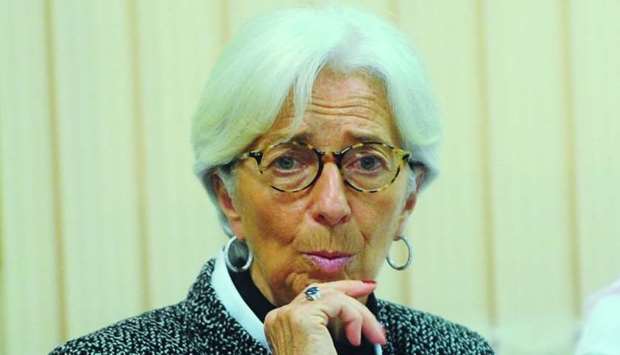The International Monetary Fund (IMF) on Monday said Qatar’s robust non-oil growth is a testament to its successful diversification and hailed Doha’s sustained proactive strategic reforms despite complacency in the Middle East owing to recent strengthening of oil prices.
Terming Qatar as a “highly valued partner”, Christine Lagarde, the IMF Managing Director, said growth in the country’s non-hydrocarbon sector has been much on par with that of the oil importing countries.
“This, in our view, is a clear indication of good diversification strategy that is actually generating growth,” she said in Doha yesterday at the roundtable organised by Qatar University (QU), in collaboration with the Ministry of Finance.
An IMF projection suggests that Qatar's real gross domestic product (GDP) is slated to expand 3.1% this year, which is higher than the Gulf Co-operation Council average of 2.2%. Doha's non-oil (real) GDP is expected to grow 1.4% compared to a higher 4.7% in the non-hydrocarbon real GDP.
According to the Ministry of Development Planning and Statistics (MDPS), Qatar’s non-oil sector has been growing faster than the hydrocarbons. On a yearly basis, the mining and quarrying sector is estimated to have grown 0.2% and non-oil sector by 3.6% during the third quarter of 2017.
Within non-hydrocarbons, the wholesale and retail trade's real growth year-on-year is estimated to be 10.9%, manufacturing 10%, construction 8.8%, utilities 5%, information and communication 3.6%, real estate 1.5%; while that of finance and insurance fell 1.4%, transport and storage 0.3% and accommodation and catering (0.1%), MDPS had said.
The Breton Woods’ institution was highly appreciative of Qatar’s strategic reforms, which includes dismantling of administered mechanism in the domestic fuel prices and other fiscal measures.
The Middle East in general and the Gulf economies in particular had been taking series of reforms ever since the oil prices fell from its high of $147 a barrel but there were reports that some of the economies had applied brakes to the reforms due to the recent strengthening of oil prices.
Asserting that the recent increase in oil price is certainly not a reason to slow down the process (of reforms) and be complacent; she said “It seems not to be the case with this country (Qatar).”
In his opening remarks, QU president Dr. Hassan al-Derham welcomed Lagarde and said the university has developed a new strategy aiming at enhancing its academic programs and research, and to boosting its efforts to support the development of the local economy.
"Qatar has developed many strategies to support the research field. These include the establishment of Qatar National Research Fund and Qatar Science and Technology Park, and the launch of a new vision for Qatar Development Bank. These efforts play a crucial role in diversifying the economy and making it sustainable, while building a culture of entrepreneurship in the country,” he said.


